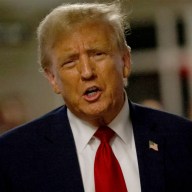By Christine Kim
SEOUL (Reuters) – South Korea is considering a supplementary budget in addition to other measures to support the economy as domestic and global downside risks grow, the country’s vice finance minister said. “We are mulling over fiscal measures to reinforce the economy and a supplementary budget is among those,” said Vice Finance Minister Choi Sang-mok in an interview with Reuters on Thursday. The government is most concerned about a further slowdown in exports and investment prolonging low growth and low employment, Choi said when asked about the biggest problems facing the economy.
“The strength of the improvement we saw past the first quarter was a bit weak and it has been difficult to say that the recovery in the job market is strong,” he said.
In light of these challenges, Choi said the government plans to train its focus on job growth when it announces its policy plans for the second half of the year and makes its mid-year forecast revision. The government’s GDP forecast for this year currently stands at 3.1 percent, projected last December. The Bank of Korea’s forecast for 2016 GDP growth is currently 2.8 percent.
As for trade, the vice finance minister said the government hopes the decline in exports will continue to slow, but did not say whether shipments would post growth by year-end. South Korea’s exports have been falling since January last year as global trade weakened on cheap commodity prices. OFFSHORE CONCERNS
Choi’s comments came just a few hours after South Korea announced it will ease one of the key capital controls it implemented after the 2008-2009 global financial crisis as concerns grow over possible capital outflows in the face of higher interest rates in the U.S. The government is closely monitoring the U.S. Federal Reserve’s policy, but Choi said another rate hike by year-end is unlikely to jolt markets as it did last December when the Fed raised rates for the first time in nearly a decade. Regarding Britain’s referendum next week on whether to leave the European Union, the vice finance minister said authorities are watching the situation on a daily basis and have contingency plans should an exit vote materialize, although he did not elaborate. “We’ve responded to this kind of thing before during previous crises like in 2011,” said Choi. “There is a pattern that these global events take that affects our financial system and real economy and we have plans to respond to that step by step.” The finance ministry said earlier in the day related authorities would monitor the likelihood of a British exit on a 24-hour basis closer to the June 23 referendum date.
Policymakers will also hold an emergency meeting if Britain decides to leave the EU, as they do regularly for Fed meeting results.
(Editing by Simon Cameron-Moore and Sam Holmes)
















